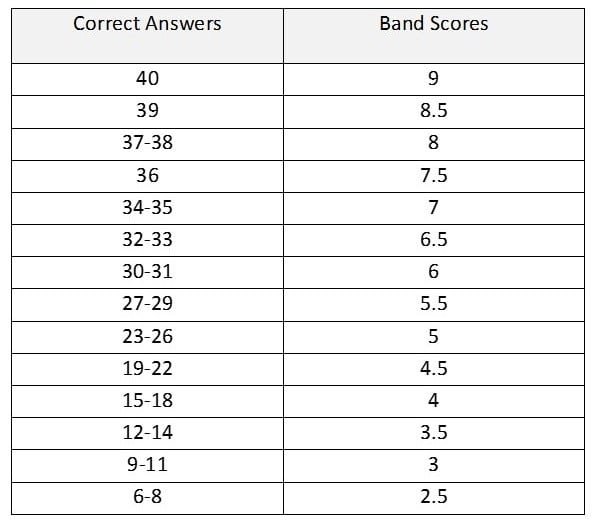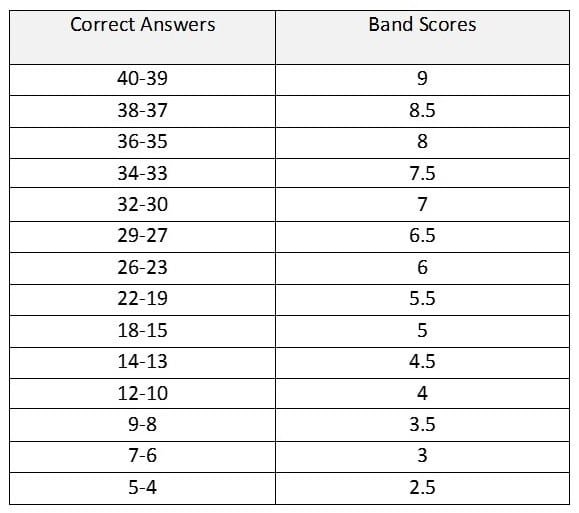Here are the most frequently asked questions about IELTS reading test.
Question:
How long is the IELTS reading test?
Answer:
The IELTS reading test is 1 hour in length and it comes directly after your listening test. There is no extra time given to transfer your answers to the answer sheet.
Question:
How many reading passages are there?
Answer:
There are usually three reading passages for the academic paper and the general training paper. However, some candidates have reported getting 4 reading passages too.
Question:
Do General and Academic candidates take the same reading test?
Answer:
No, there are two different tests for IELTS reading tests. One is the academic training paper and one is the general training paper. Before your test you will decide which IELTS test you will take and this will affect both your reading and writing papers. If you don’t know which one you are taking, please follow the link to the IELTS website for information.
Question:
What kind of reading passages are there for the academic paper?
Answer:
Each passage in the academic reading paper is long. The passages are usually taken from books, magazine and newspapers (they are authentic passages). They can often contain complicated language, academic vocabulary and sometimes diagrams, maps or some kind of illustration.
Question:
What kind of passages are there for the general training paper?
Answer:
The General Training reading paper has three passages, each one getting more difficult. The first one is relevant to everyday English life and could be factual information about a school course or some kind of service, such as a hotel. The second one focuses on work issues, such as training courses at work, resources at work, application procedures or about pay schemes. The last reading passage is longer and is the most difficult. This is based on a topic of general interest.
Question:
How many questions are there in the IELTS reading test?
Answer:
There are 40 questions in total for your IELTS reading test.
Question:
How are the scores calculated?
Answer:
You get one point for each correct answer. You do not lose points for an incorrect answer. The academic and general training papers have different scoring.
General Reading Scoring

Academic Reading Scoring

Question:
Do I lose a point if my answer is wrong?
Answer:
No, you don’t lose a point for a wrong answer. So, never leave an empty space on your answer sheet – always have a guess.
Question:
Should I use a pen or pencil in the reading section?
Answer:
For your reading and listening test, you must use a pencil. so don’t forget to take an eraser with you. However, for writing you can choose either pen or pencil.
Question:
Do I have time to transfer my answers at the end of the reading test?
Answer:
No, there is no extra time for transferring answers. You must write your answers directly on to your answer sheet during the 1 hour.
Question:
How long should I spend on each passage?
Answer:
It is recommended that you spend 20 minutes on each passage. Make sure you keep your eyes on the clock to make sure you manage your time effectively. Don’t leave yourself too little time for passage 3.
Question:
What types of questions will I get in IELTS reading?
Answer:
There are many different types of questions and you must practice all of them. Go over the tutorials on IELTS reading question types and strategies on how to deal with them.
Question:
Can I write on the reading question paper?
Answer:
Yes, you can. You can make notes, underline words and write on any part of the question paper. Only your answer sheet will be marked. In fact, it is very useful to make notes on your question paper and can help you locate answers.
Question:
Are capital letters important?
Answer:
Yes, they are. If it is a name, a place name or a month, you will need to write a capital letter at the start of the word for the answer to be correct.
Question:
Can I write all my answers in capital letters on my reading answer sheet?
Answer:
Yes, you can. Sometimes this is a good idea because usually your writing will be easier to read and also you avoid the problem with remembering to put capital letters at the beginning of proper nouns.
Question:
Is spelling important?
Answer:
Yes, it is. If the answer is spelled incorrectly, it will be marked wrong. So pay attention to your spelling of long academic words.
Question:
Can I write T instead of True for the True False Not Given questions?
Answer:
Yes, it’s possible to write a letter instead of the word True or you can write Y instead of the word Yes.
Question:
Can I write Y instead of True for the True False Not Given questions?
Answer:
No, you can only write Y for the word Yes. If you write Yes or Y instead of True or T, it will be marked wrong.
Question:
Do all answers come in order?
Answer:
No, only some of the question types have answers which follow the order of information in the passage. You need to learn which ones do and don’t. For the following IELTS reading question types, the answers are usually (almost always) in order in the passage:
- All types of gap-fill (sentences, summaries, diagrams etc.)
- True, false, not given
- Yes, no, not given
- Multiple choice
- Matching sentence endings
- 'Short answer' questions
However, answers to the following question types are never in order:
- Matching paragraph headings
- Which paragraph contains the information?
- Matching names with statements or information
Question:
How can I improve my reading skills?
Answer:
Here are some tips for improving your reading skills for IELTS.
(1) develop skills of each type of question in reading – focus on just one type of question each day to improve your technique. Go over the IELTS reading tutorials to get information and tips on reading question types.
(2) develop your speed reading skills – the passages are long and time is limited so you need to build your speed.
(3) develop your ability to skim and scan – IELTS reading is not about understanding everything, it’s about locating answers.
(4) read academic articles on various topics – read the bbc news, the new scientist, the economist etc.
(5) practice – use the practice passages in my course to improve your techniques and skills
(6) practice tests – do practice tests to develop your concentration, test your timing and to know your band score. You should take your practice tests from the IELTS Cambridge books 1-10 because they are real past exam papers.

